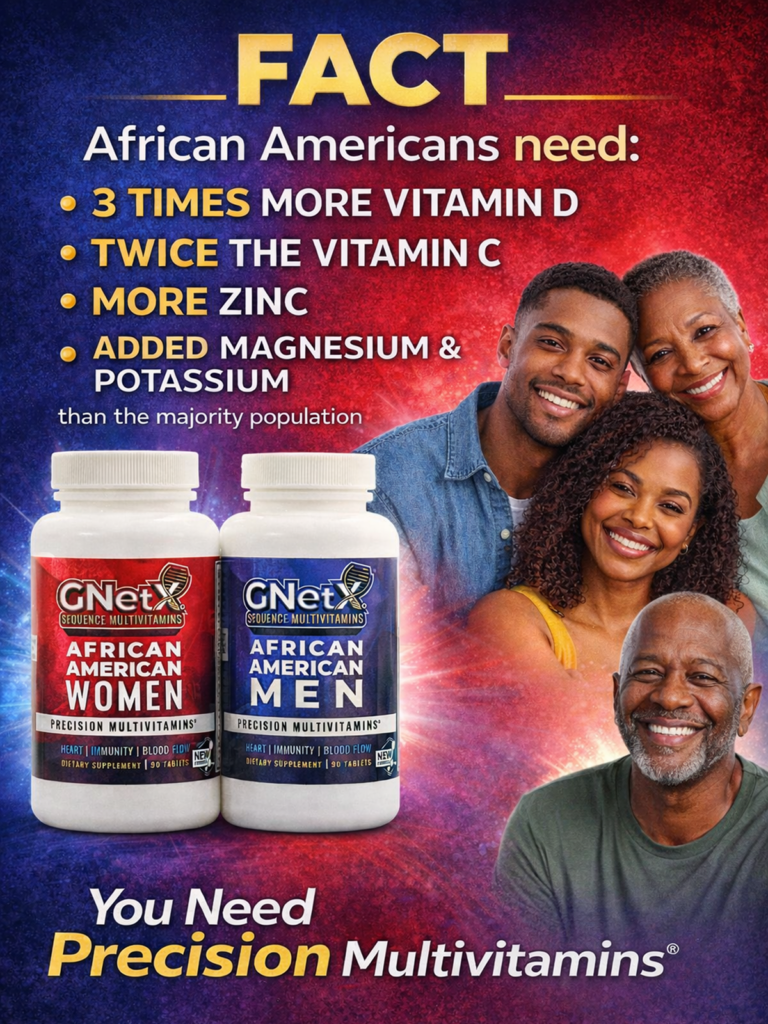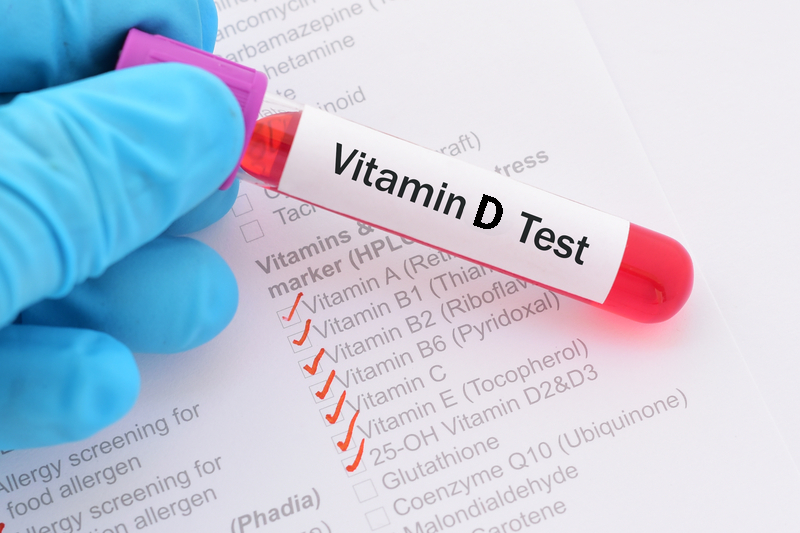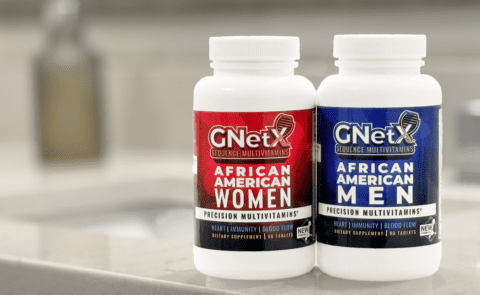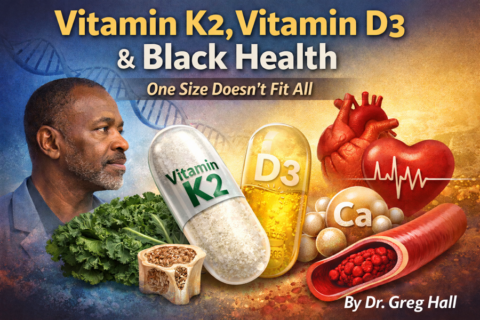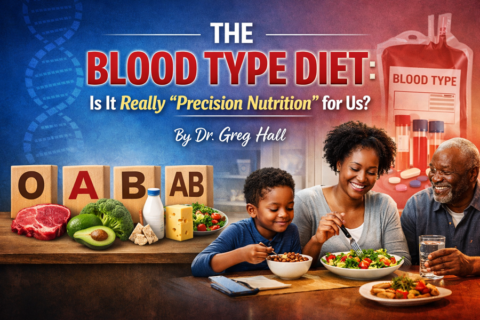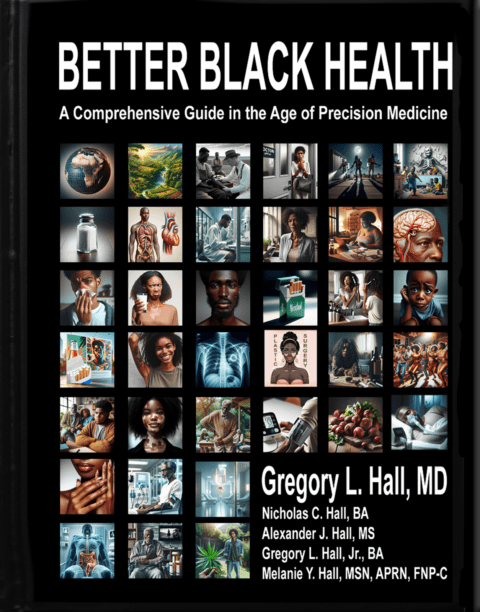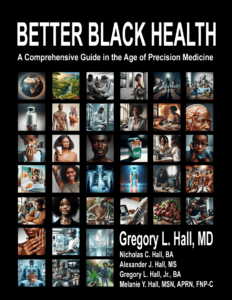African Americans Have Low Vitamin D
Vitamin D is acquired through diet and skin exposure to ultraviolet B light. The skin’s production of vitamin D is determined by length of exposure, latitude, season, and degree of skin pigmentation. African Americans produce less vitamin D than do White Americans in response to equal levels of sun exposure and have dramatically lower vitamin D concentrations with some studies indicating up to 82 percent of the African American population as low. Yet both races tend to have similar capacities to absorb vitamin D and to produce vitamin D when exposed to light.
Overall when measured, African Americans tend to have lower vitamin D3 levels and are very frequently labeled “vitamin D deficient”, but also have confirmed stronger bones and fewer fractures. But vitamin D deficiency is linked to far more issues than just bone strength. Vitamin D deficiency is linked to higher risk of breast cancer, colon cancer, and prostate cancer. It is also linked to higher incidences of heart disease, kidney problems, and diabetes.
We Need More Vitamin D
Four of five African Americans are vitamin D deficient compared to less than one in three White Americans. Vitamin D deficiency is associated with increasing diabetes, hypertension, prostate cancer, breast cancer, colon cancer, and more. African Americans have the highest risk for all of these diseases.
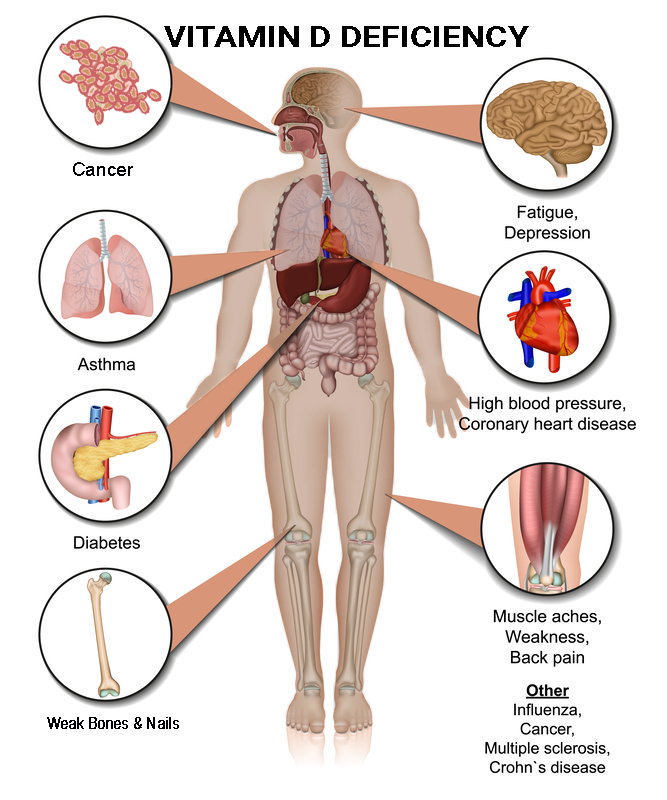
Ken Batai and colleagues at the University of Arizona, after studying over two thousand people, found a direct benefit to Vitamin D supplements in preventing prostate cancer in African American men and a pro-carcinogenic effect (inducing effect) of calcium supplementation on the prostate. These findings were strongest in African Americans.
“Calcium and vitamin D are important nutrients, and they may have preventive effects against many health conditions. Although toxicity from high vitamin D supplementation may be low, high calcium intake is associated with increased prostate cancer risk as well as risk of cardiovascular disease and kidney stones. High calcium consumption might be harmful and for prostate cancer prevention, high dose calcium supplementation and fortification should be avoided, especially among AA (African American) men.”
Vitamin D Deficiency Raises Cancer Risk
High calcium intake in African American men may actually increase the risk for prostate cancer, but taking vitamin D can reduce the risk. Vitamin D plays a crucial role in regulating cell growth and maintaining a healthy immune system, which can help in cancer prevention. It aids in cell differentiation and apoptosis, reducing the risk of cancerous cell development. Additionally, adequate vitamin D levels have been associated with lower inflammation, which is a known factor in cancer progression. Vitamin D enhances the immune system by stimulating the production of antimicrobial peptides, which help the body fight off infections. It also modulates the activity of immune cells, such as T cells and macrophages, ensuring they function optimally. This regulation helps prevent chronic inflammation, a condition that can contribute to the development and progression of cancer.
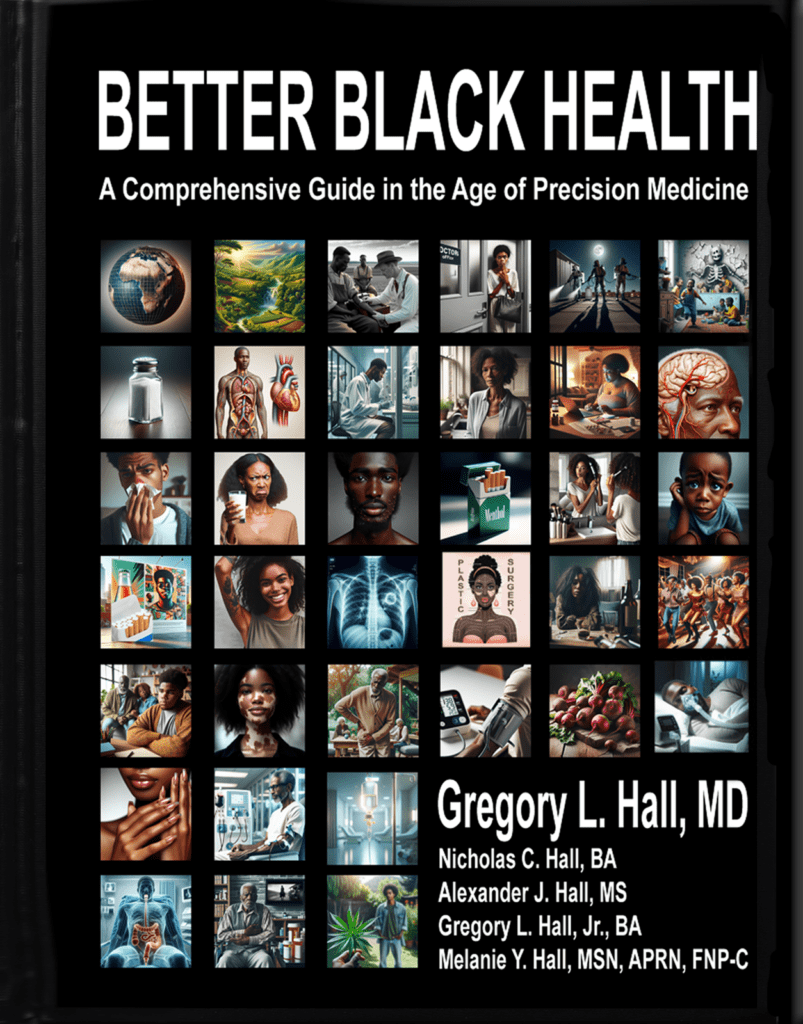
Besides its role in cancer prevention, vitamin D is essential for bone health, as it facilitates the absorption of calcium and phosphorus, which are critical for maintaining strong bones. It also supports cardiovascular health by regulating blood pressure and reducing the risk of heart disease. Additionally, vitamin D has been linked to improved mood and cognitive function, potentially lowering the risk of depression and cognitive decline.
Dementia Too!
Low vitamin D is also associated with Alzheimer’s and other dementias and may contribute to cognitive decline. Research suggests that adequate vitamin D levels are crucial for brain health, as they support neuroprotection and reduce the risk of neurodegenerative diseases.
To maintain adequate vitamin D levels, it is important to spend time outdoors in sunlight, as the skin synthesizes vitamin D when exposed to UV rays. Additionally, incorporating foods rich in vitamin D, such as fatty fish, fortified dairy products, and egg yolks, into your diet can help boost your intake. For most of us who do not get enough sun exposure or have dietary restrictions (lactose intolerance and/or high cholesterol), taking vitamin D supplements or multivitamins with an adequate amount of vitamin D is the only answer. African Americans need 2000 IU of vitamin D daily.
There is a multivitamin designed just for African Americans. GNetX Sequence Multivitamins have high vitamin D, vitamin C, magnesium, and much more of what African Americans need while leaving out those substances that may be harmful.
